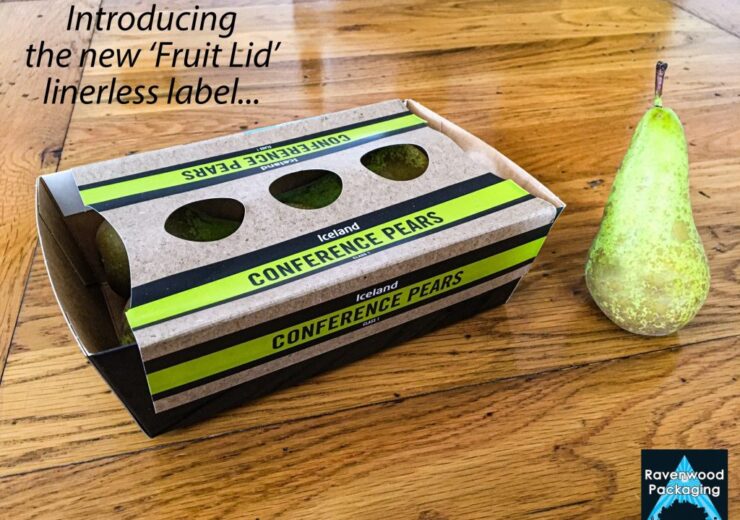By 2023, Iceland aims to eliminate plastic from its own brand foods and become carbon neutral by 2042

Iceland’s new ‘Fruit Lid’ linerless label designed for Conference pears. (Credit: Ravenwood Packaging)
UK-based frozen food retailer Iceland has selected linerless labels from ProPrint Group, a Ravenwoood UK-approved linerless printer, for trialing plastic-free packaging across its range of conference pears.
The move is a part of the retailer’s ‘Doing it Right’ plan to eliminate plastic from own brand foods by 2023 and become carbon neutral by 2042.
As part of the trial, Iceland has launched the conference pears in ‘Fruit Lid’ linerless label designed by Ravenwood and food-grade cardboard tray.
Previously, Iceland used plastic poly bags and plastic punnets for its conference pears.
Iceland packaging head Stuart Lendrum said: “This is an exciting and innovative new pack format that delivers more plastic free packaging for our customers.
“The hard work and commitment of everyone involved has delivered this step forward in moving away from plastic with solutions that work for shoppers and the supply chain.”
Iceland’s conference pears packed and sleeved at Keelings International
Iceland processes, packs and sleeves the conference pears at Keelings International in Newmarket.
Keelings commercial manager Oliver Dent said that Iceland has further scope to launch linerless across more of its own-label ranges subject to successful completion of the trial.
Ravenwood said it has supplied a Nobac 5000L linerless applicator designed for applying the Fruit Lid labels to the packs.
Ravenwood founder Paul Beamish said: “We have worked very hard, alongside ProPrint Group in getting the design and specification spot on for Iceland’s pear fruit application.
“Not only has Iceland adopted our linerless technology but in meeting their needs and requirements, we have launched a completely new type of label. We look forward to working with Keelings and Iceland again in the future.”
In March, Iceland said it had eliminated 29% of plastic from annual packaging usage as part of its sustainable efforts to minimise plastic wastage.
